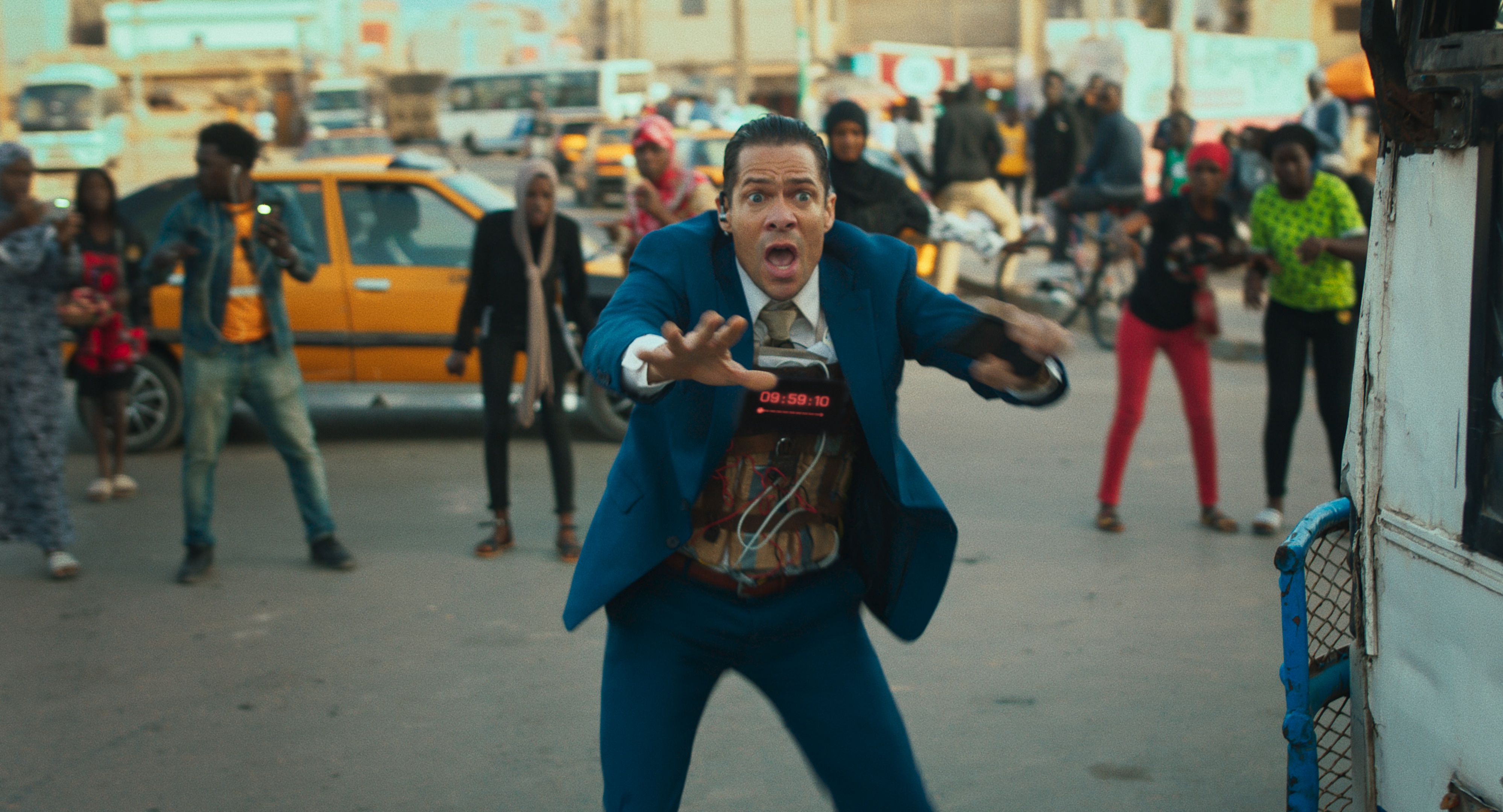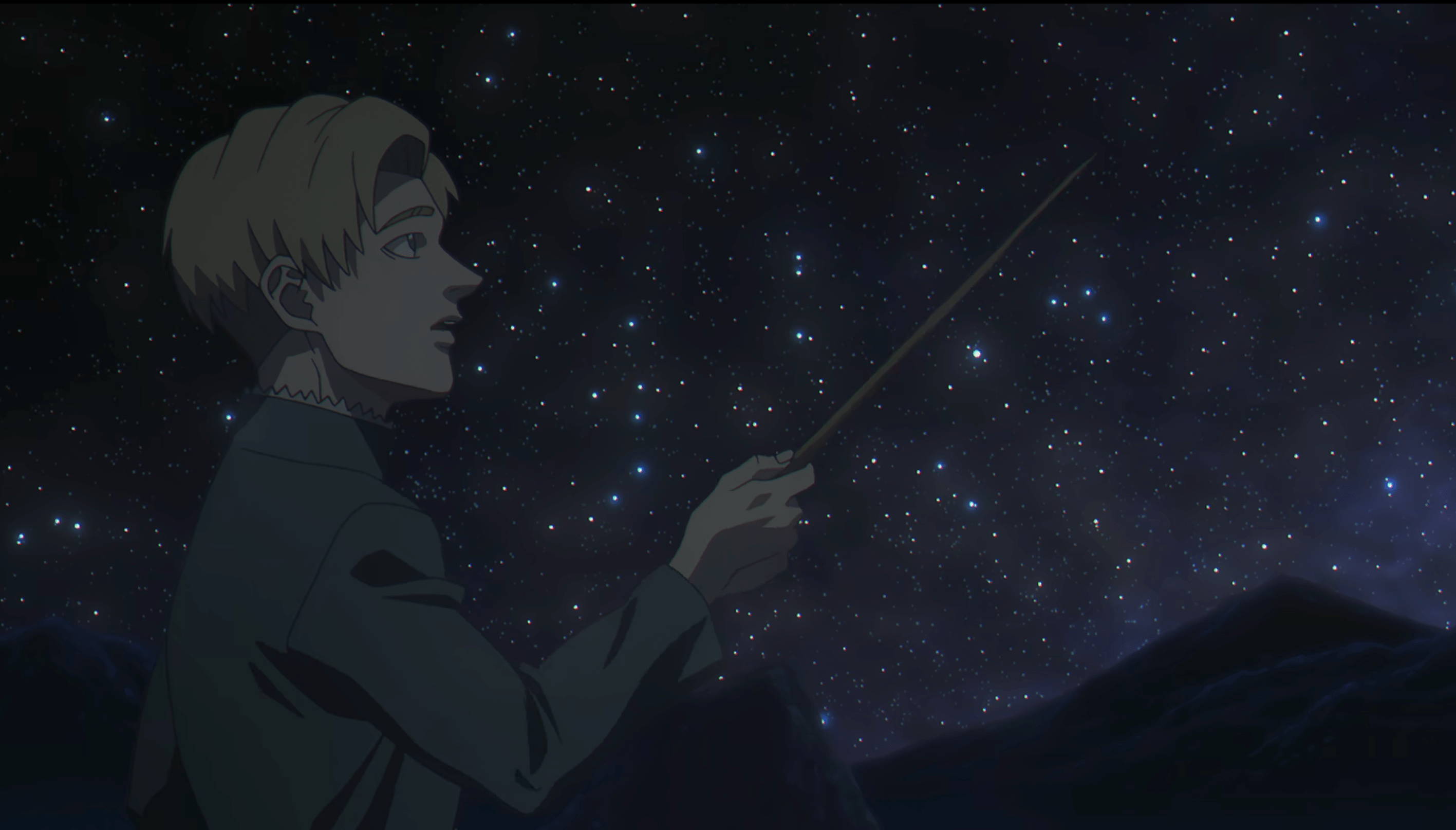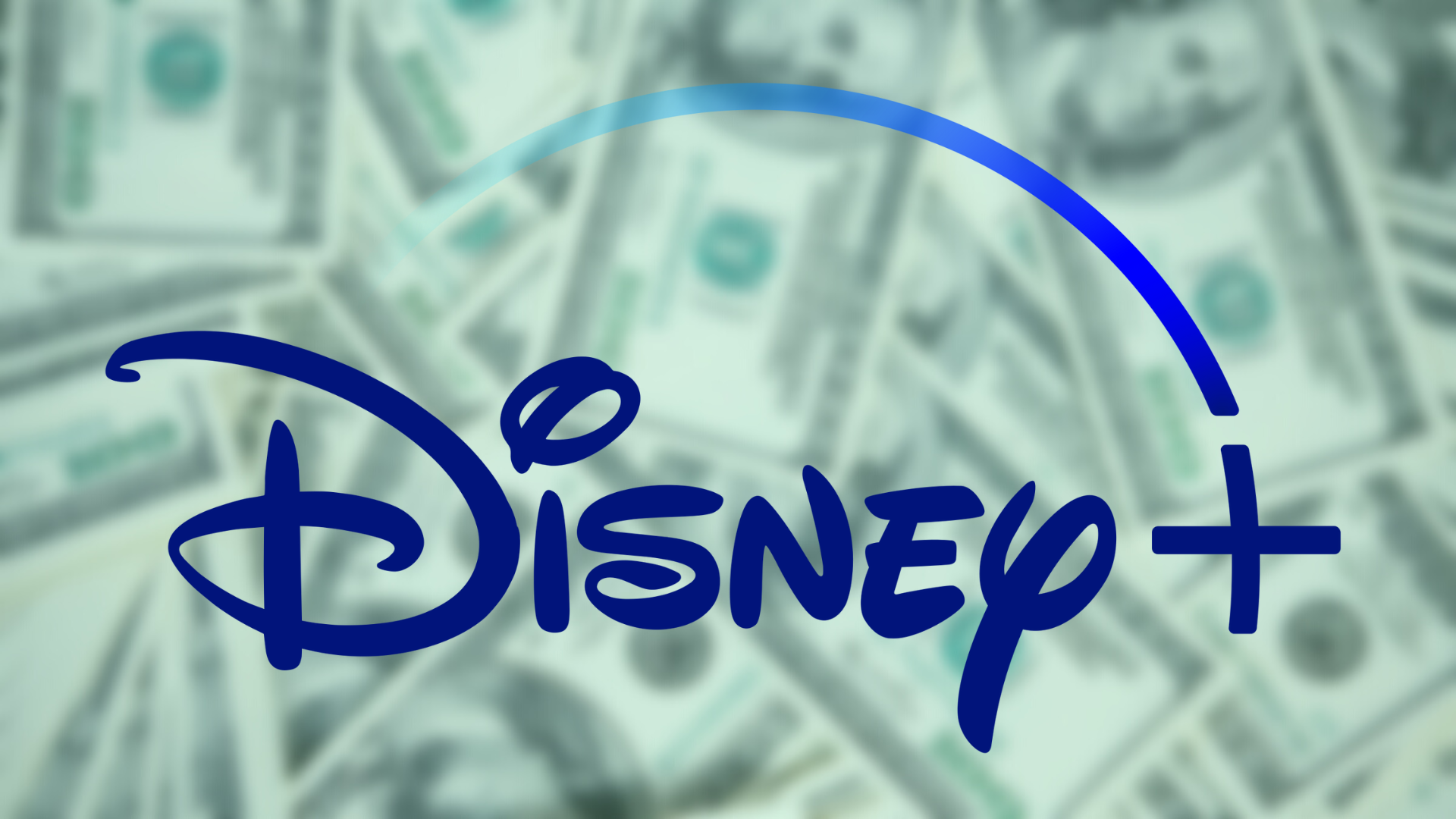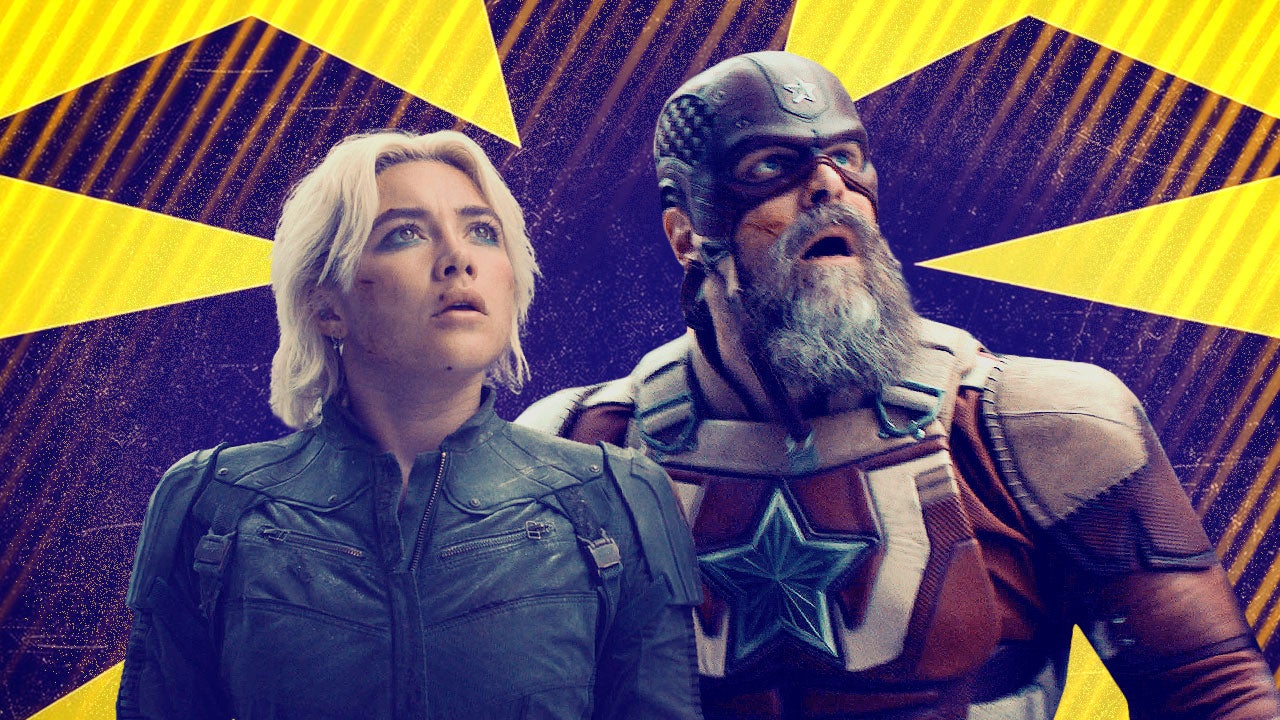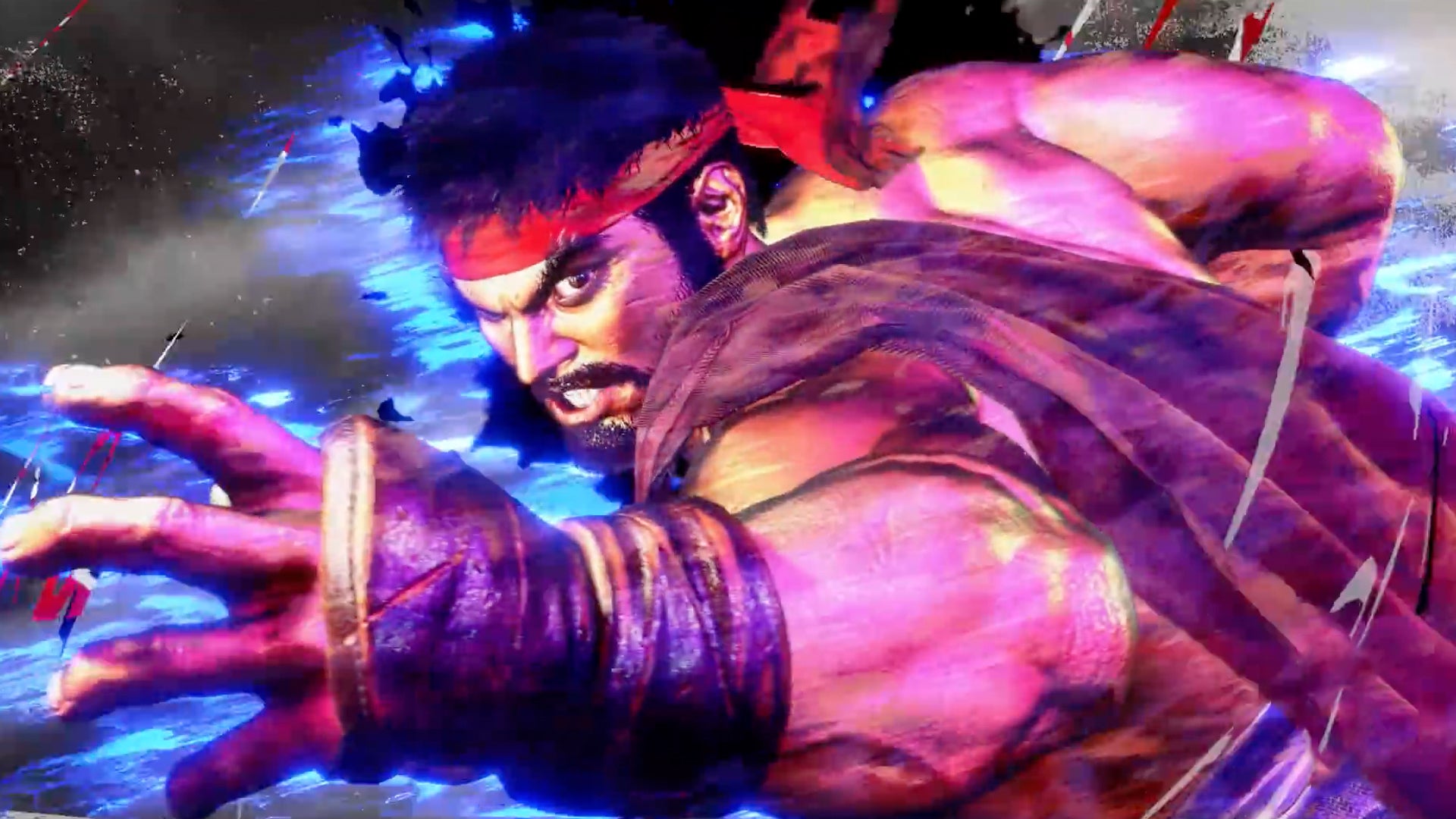
After taking the world of genre cinema by storm with 2022’s cult hit Saloum, director Jean Luc Herbulot is back with another fascinating genre experiment filled with surprising twists and turns and a radical political message. His new movie Zero, out in theaters and available on VOD this week, is one of 2025’s most explosive new movies — and not just because its premise involves quite a few bomb vests. Part Crank, part Phone Booth, part odd-couple buddy comedy, part unusually relevant action movie, it’s a memorable and stylish new entry for one of the most exciting up-and-coming filmmakers working today. And though it was filmed more than two years ago, it keeps getting more prescient with each passing month — to its filmmakers’ simultaneous delight and dismay.
In Zero, two American men wake up in Dakar, Senegal, with bomb vests strapped to their chests, a timer ticking down, and a strange man (Willem Dafoe) speaking to them via earbuds. If they complete five simple tasks, he claims, he’ll set them both free. The truth is far more complicated.
This setup allows Herbulot and co-writer, producer, and star Hus Miller to explore weighty issues like the USA’s outsized influence on the Global South, individual Americans’ complicity in the violence that results from that influence, the media’s relationship to terrorism, and how to compel mass action from oppressed groups around the world. In a director’s statement provided to the press, Herbulot says he “wanted to bind geopolitics and emotions in a surreal world,” exploring how “two seemingly innocent people can become enemy number one, reversing the propaganda that is often used in Western politics.”

For better or worse, Zero’s political material is even more relevant today than when it was shot in 2022 and 2023. “There were so many things that happened [in real life] that we did in the movie,” Miller told Polygon in a video interview. “Even when we were looking for footage, a year later we had the footage, because it was actually happening.”
“It was in the streets!” Herbulot exclaimed in the same interview, referencing movements in West Africa to separate countries from France’s influence. “That’s when you know that you’re touching a universal subject.”
I watched Zero days before the announcement of Trump’s worldwide tariffs, and in the midst of the American government’s continued support of a genocide in Gaza, which is certainly using some of my tax dollars, and is supposedly on behalf of Jews like myself. That all made Zero’s story hit harder for me — it’s explicitly about America’s influence on the rest of the world, and how even unwilling Americans can contribute to global destruction.
“That was an important part of the initial concept of Zero in the first place, and that’s why we did it in Africa,” Miller said. “Something that we haven’t really talked about much is having this inverse of [fictional portrayals of] terrorism. [In the movie,] you’re seeing Americans do this, right? But they’re doing it unwillingly, and being used as pawns to do it.”

Herbulot was born in Congo-Brazzaville, has lived in many different countries, and survived a civil war. For him, infusing political elements through a genre framework wasn’t “strategic,” he said. It just came naturally.
“The subject started to call for that, and the voice [Dafoe’s character] started to call for that,” Herbulot said. “The political stuff came as a tool to understand why the voice is doing it, how the voice is doing it, and who is the voice, without telling you who it is. When we did the movie, there was no [generative] AI yet, but I knew there was going to be a technology where you can do whatever you want with your voice. So the idea for us was, we are never going to identify this person, because it can be a kid somewhere, or a person trying to just fuck with everybody else, or it can be the CIA. Who knows, right? We don’t need to answer that question, but what we want you to think about is that it’s omnipotent, it’s omnipresent, and it’s everywhere in the world.
“It’s about how this movie can last in the next five years, in the next 10 years. Hopefully, when you watch it back, you’re like, Oh, it’s still actuality, it’s still happening. So that was my main goal as a storyteller. I want to make something that puts an inception in your head and stays there for a long time.”
As with Saloum, the weighty and overtly political themes are contained within a stylish, thrilling genre package that clocks in under 90 minutes and wastes no time getting into the heart of the story. The genre combination is appealing: The thrills of action, the tension of horror, and the release of comedy (an unplanned addition to the mix that happened while they were shooting, Herbulot says) will be instantly recognizable to fans of Saloum and Herbulot’s work.
“It’s not easy for the marketing team to work on my movies, because they’re like, ‘Is it an action movie? Is it a comedy? Is it a political thriller?’ And I’m like, ‘Whatever,’” Herbulot said. “I don’t give a shit about genre. I just try to follow the characters and the story.”

A lot of the movie’s comedy comes from the clash between the two American characters. #1 (played by Miller — the characters don’t get names) is from Wall Street, and is talkative, desperate, and skittish, questioning everything about the ridiculous, dangerous situation he’s in. #2 (Cam McHarg) is a violent man of action, not words, and seems remarkably calm and collected, despite the bomb strapped to him. Along the way, we are introduced to many, many characters with their own on-screen ticking timers counting down to their deaths, from mere minutes to more than a year.
Dafoe, meanwhile, is pure mischief as the voice, a mix of Kiefer Sutherland in Phone Booth (a direct reference the filmmakers were pulling from) and Jigsaw in the Saw series (a subconscious reference that surprised and thrilled the filmmakers when I brought it up). They never thought they’d land the four-time Oscar nominee for the role. But after they reached out to him, he watched Saloum, loved it, and signed on.
Herbulot deploys uptempo editing in Zero to keep things moving at a brisk pace, maintaining surprise and humor around nearly every corner. The evocative costumes (especially the ones used to cover the bomb vests — one is a fur coat, in spite of the sweltering Dakar heat), the focus on expressive faces and minute details, and the playful stylistic choices (like a diorama effect using tilt-shift photography to create an impersonal “eye of god” perspective for Dafoe’s character) keep things captivating visually. And as with Saloum, the score is energetic and vibrant.
My favorite of these moments is the first time a bomb explodes in Zero. Rather than focusing on the frankly not-all-that-impressive explosion VFX you would expect from a movie working with a modest budget, Herbulot instead directs the camera to the process and the fallout: gears turning in a watch, people flying through the air in slow motion (filmed like the view from the bottom of a trampoline), sand rippling.
It’s economical and thrifty filmmaking, but also makes for a striking, distinctive visual approach. When the PR team working with Zero offered Polygon an exclusive clip of the movie for this story, I immediately thought of this moment, because it’s a great encapsulation of Herbulot’s stylistic approach and willingness to zig where others might zag.
Without spoiling things, Zero culminates in a startlingly bold ending. It openly explores what it would take to actually build a better world, and unlike other action movies with political material, it doesn’t flinch in the face of tough questions. Even if it does stumble at some points along the way (Saloum is a slightly more polished project), it’s another promising entry from a fascinating artist whose ambition is only outmatched by his stylistic flair and admirably economical pacing.
Zero itself seems poised to grow as well, as a changing world order continues to unfurl itself. “I’m glad [increased relevance of the subject matter] is happening in some ways, for the movie,” Miller said. “But for the world, I’m a little skeptical.”
“I am really proud that the movie is going out in theaters in the U.S., because it was never meant to be an anti-American movie,” Herbulot said. “It was meant to be an anti-domination movie. It’s more about the mechanism of power in place, and we hope it’s going to stay in people’s heads.”
Zero is now playing in theaters, and is available for digital rental or purchase on VOD platforms. Saloum is streaming on Shudder, AMC Plus, and for free with ads on Hoopla, and is also available for digital rental or purchase on VOD platforms.
Source:https://www.polygon.com/movies/555479/zero-movie-thriller-jean-luc-herbulot-hus-miller-saloum-interview